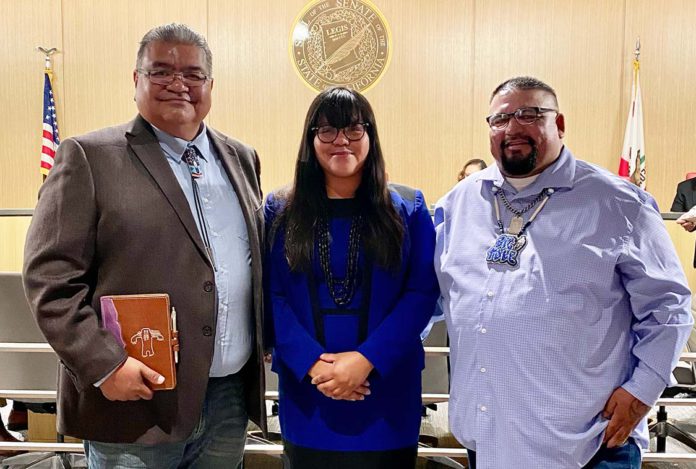
MADERA, CA – Chairperson Janet K. Bill of the Picayune Rancheria of the Chukchansi Indians recently testified before the Joint Legislative Audit Committee and Select Committee on Native American Affairs to request that California State University (CSU) prioritize the requirements of the Native American Graves Protection and Repatriation Act (NAGPRA) and CalNAGPRA that are intended to protect Native American gravesites and create a process to return cultural remains.
“While these laws aim to protect Native American gravesites and cultural remains, absent compliance and enforcement, these laws are degraded to nothing more than words on paper, full of empty promises,” said Chairperson Bill. “Ancestral remains and cultural items hold immense significance for our people. Preserving our history lets our current and future generations understand and appreciate the resilience of our people. Today, we call on the State of California and the California State University Chancellor’s Office to make systemic changes that will not only ensure compliance with NAGPRA and CalNAGPRA, but most importantly, will free our ancestors and bring items that once were stolen, back home.”
The federal NAGPRA was enacted in 1990. In 2001, California enacted CalNAGPRA, which provided a mechanism for California tribes that do not have federal recognition to submit repatriation claims to agencies such as the CSU.
The legislature amended CalNAGPRA in 2020 to require university campuses to review their collections of remains and cultural items, to consult with tribes before performing this review, and to report their collections to the Native American Heritage Commission.
A 2022 audit of CSU’s progress in meeting NAGPRA and CalNAGPRA requirements found that more than half of the CSU campuses with NAGPRA collections have not returned any remains or cultural items to tribes, and those that have, have only returned a small fraction of their collections. The audit was addressed at the Legislative Oversight Hearing.
“This audit is a critical next step in working together to ensure that all CSU campuses prioritize the directives outlined in NAGPRA and CalNAGPRA,” said Chairperson Bill. “As we have seen, tribes must have a voice in the repatriation process to keep the CSUs accountable. All efforts to protect, respect, and comply with repatriation are paramount to preserving the identity and heritage of our people. As always, we stand strongest together. Our nation is committed to working with the State of California, the California State University system, our fellow tribal leaders, and other key partners in addressing the negative findings of this audit and the barriers to repatriation.”














































